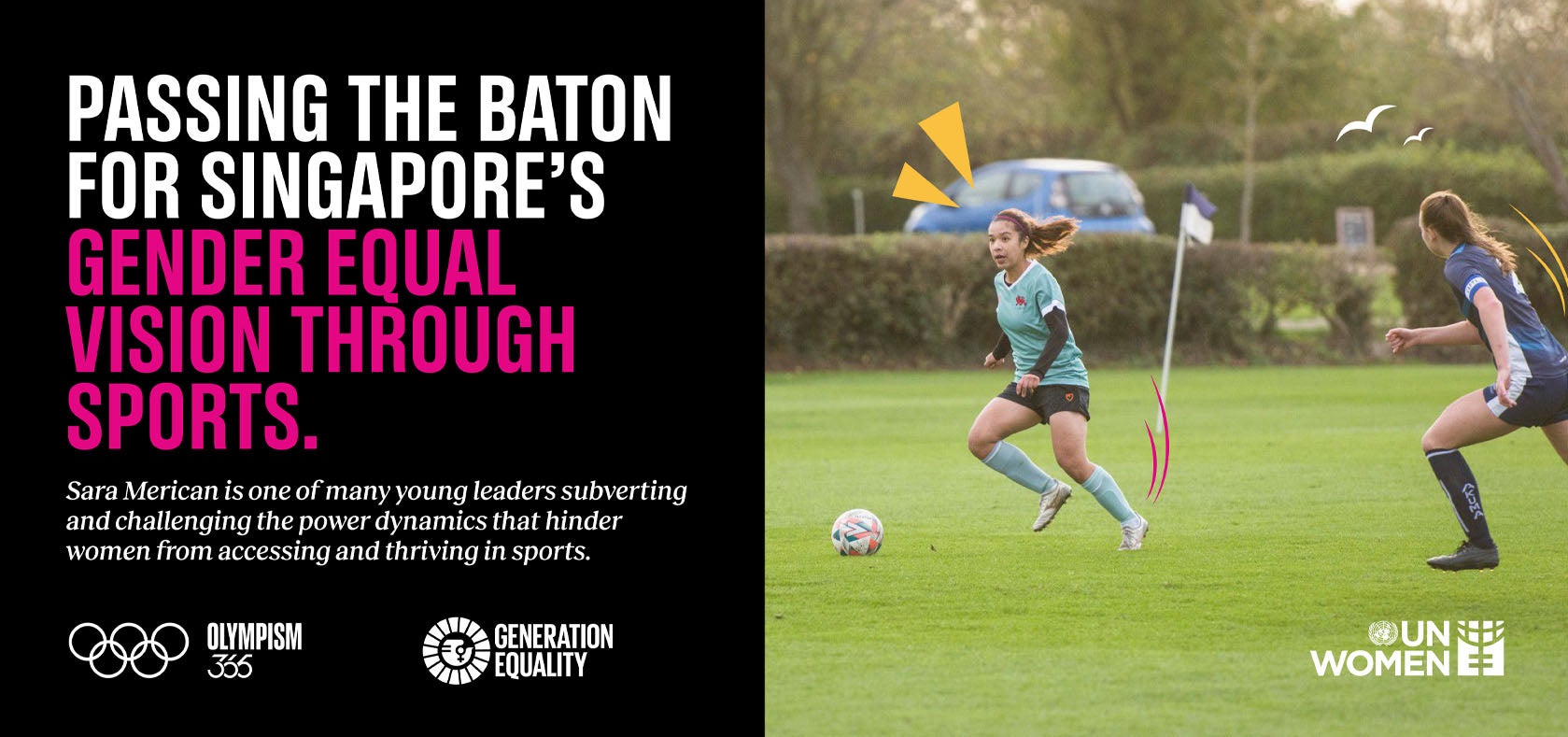Sports
Passing the baton for Singapore’s gender equal vision through sports

Photo: Courtesy of Sara Merican
Growing up in Singapore, Sara Merican, 28, has always possessed a strong affinity for sports. Even today, Merican fondly recalls early memories of playing football in her grandparents’ garden and attending football camps with her sister. It is this strong foundation and her love of all sports throughout her life which led her to years of rigorous training and competitive play. Even as a postgraduate student in Film Studies at the University of Cambridge, she balances her time as a student-athlete.
But it was a coincidental encounter at the University of Cambridge Sports Fair in September 2022, when Merican developed an immediate interest in cricket. She began to train intensively in the sport, while simultaneously negotiating and balancing her studies and career to pursue her athletic dreams. Forgoing social events to run intervals up and down the street. Putting career plans on hold to spend countless hours at the gym for strength training and plyometrics. Testing every limit of her body, all in the hopes of excelling at her newfound love of cricket.
And the tenacity certainly paid off. Merican now represents Singapore on the national cricket team, having just competed for her country at the 32nd Southeast Asian Games in Cambodia last year.
But the journey to Team Singapore hasn’t always been an easy one. Being a woman athlete in Singapore has come with its own challenges and barriers. “In football or rugby, you would receive comments, like ‘it’s not very ladylike to be playing that sport’, or ‘it’s such a rough sport, why are you doing it?’” Merican explained. With limited opportunities for coverage, sponsorship, and public visibility, elite women athletes in Singapore must make time and financial sacrifices to pursue their sport.
Such barriers are not unique to Singapore. These challenges remain pervasive across Asia and the Pacific. Women are often not able to pursue sports that fall outside the purview of gendered expectations. In many parts of the region, women and girls are often dissuaded from leaving their domestic unit due to patriarchal norms and assumed household roles.
But Merican is one of many young leaders subverting and challenging this power dynamic that hinders women from accessing and thriving in sports. Merican hopes to serve as a role model to other young women at home and abroad and to inculcate an inclusive culture for participation in sports by all genders.
For Merican, she attributes strong parental support as one of the enabling conditions of her success. Similarly, she hopes to encourage women’s participation and recognition in the sporting world and to increase awareness around women’s health in sports.
“For most of my life, I wanted to be an athlete that was good at my sport, but I realize now my ambitions have changed,” Merican reflected. “I’m more focused on improving opportunities for the next generation, empowering youth, and raising awareness of gender-specific nutrition and psychology.”








